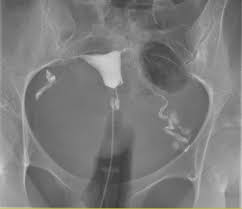The Journey of IVF: From Initial Consultation to Birth
Today, we will be taking a close look at the stages of IVF (in vitro fertilization). In vitro fertilization (IVF) is a complex and emotionally challenging journey that many couples embark on to overcome infertility and fulfill their dream of having a child. From the initial consultation to the moment of birth, each stage of the IVF process is meticulously planned and executed to maximize the chances of a successful pregnancy. In this comprehensive guide, we will explore the stages of IVF, including the medications involved, the procedures, and what both the husband and mother can expect throughout the process.
The Stages of IVF
1. Initial Consultation and Assessment
The journey of IVF typically begins with an initial consultation with a fertility specialist. During this consultation, the specialist will review the medical history of both partners, conduct a physical examination, and recommend any additional tests or screenings to assess fertility. This is also a time for couples to discuss their goals, expectations, and any concerns they may have about the IVF process.
2. Ovarian Stimulation
Once the initial assessments are complete, the woman will begin a course of medications to stimulate the ovaries to produce multiple eggs. These medications, known as gonadotropins, are typically administered through injections and are carefully monitored through blood tests and ultrasounds to ensure optimal egg development.
3. Egg Retrieval
When the eggs are deemed mature, a minor surgical procedure called egg retrieval is performed. Under sedation, a thin needle is inserted into the ovaries to extract the eggs. The procedure usually takes about 20-30 minutes and is performed on an outpatient basis.
4. Fertilization and Embryo Development
The retrieved eggs are then fertilized with sperm in a laboratory setting. This can be done through traditional insemination, where sperm is placed with the eggs in a culture dish, or through intracytoplasmic sperm injection (ICSI), where a single sperm is injected directly into an egg. The fertilized eggs, now embryos, are cultured in the laboratory for several days to allow for development.
5. Embryo Transfer
After the embryos have developed, one or more are selected for transfer into the woman’s uterus. This is typically done 3-5 days after egg retrieval and is a relatively simple procedure that does not require anesthesia. The number of embryos transferred is based on several factors, including the woman’s age and the quality of the embryos.
6. Pregnancy Test and Follow-Up
About two weeks after embryo transfer, a pregnancy test is performed to determine if the IVF cycle was successful. If the test is positive, the woman will undergo regular monitoring to ensure the pregnancy is progressing normally. If the test is negative, the couple may choose to undergo another IVF cycle or explore other options.
Giving Birth: Normal Birth vs. Cesarean (C-Section) Birth
If the IVF cycle is successful and the pregnancy progresses without complications, the woman will go into labor and give birth like any other pregnant woman. However, in some cases, a cesarean section (C-section) may be recommended for delivery. This could be due to factors such as the position of the baby, the size of the baby, or other medical considerations.
What to Expect Throughout the Process
Throughout the IVF process, both the husband and mother can expect to undergo a range of emotions, from hope and excitement to frustration and disappointment. It is important for couples to communicate openly with each other and seek support from friends, family, and mental health professionals if needed. Additionally, maintaining a healthy lifestyle, including regular exercise and a balanced diet, can help support the IVF process and improve overall well-being.
Conclusion
The journey of IVF is a complex and challenging one, but for many couples, it offers the opportunity to fulfill their dream of having a child. From the initial consultation to the moment of birth, each stage of the IVF process is carefully planned and executed to maximize the chances of success. By understanding what to expect and staying informed throughout the process, couples can navigate the challenges of IVF with confidence and hope for a positive outcome.
Cyprus Crown IVF Contact: https://en.cypruscrownivf.com/contact
Cyprus American IVF Contact: https://www.cyprusamericanivf.com/contact-us/
Dr. Halil Ibrahim Tekin (Dr. HIT) Youtube: https://www.youtube.com/@dr.halilibrahimtekin1715
Cyprus American IVF Youtube: https://www.youtube.com/@AmerikanTupBebekMerkezi




